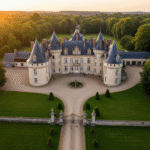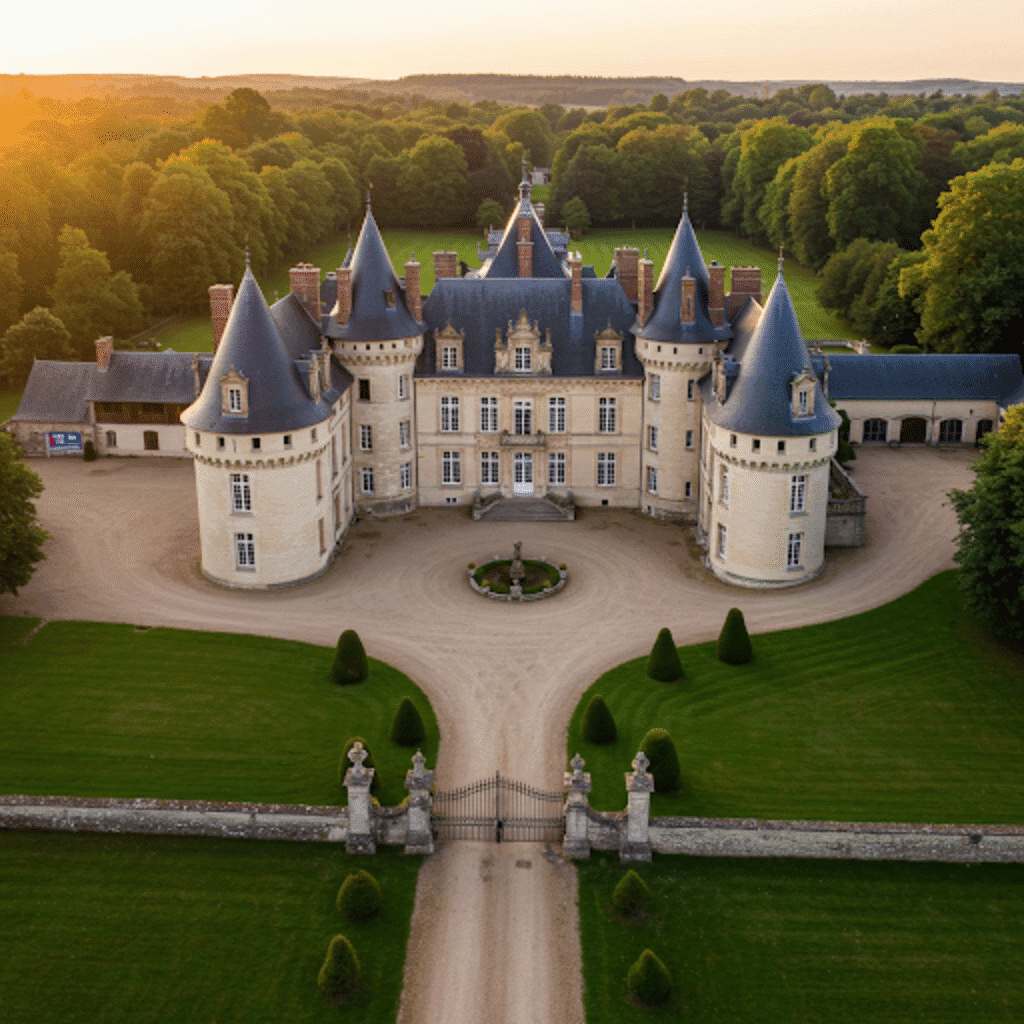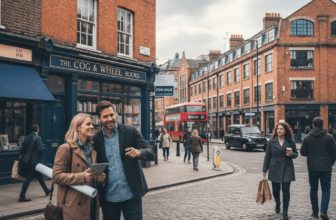
Owning a Piece of French History: The Allure and Reality of Buying a Chateau
For many across the United Kingdom, the dream of owning a French chateau evokes images of fairytale turrets piercing azure skies, rolling vineyards stretching towards the horizon, and long, leisurely lunches enjoyed in sun-dappled courtyards. It speaks of escaping the hustle and bustle, embracing a slower pace of life steeped in history, elegance, and perhaps, a touch of aristocratic grandeur. The idea of swapping a semi-detached in Surrey for a sprawling estate in the Dordogne holds an undeniable romance. But beyond the idyllic vision, what is the reality of searching for, purchasing, and living in a French chateau?
The term ‘chateau’ itself can be slightly misleading to the uninitiated. While it certainly includes the magnificent, moated castles of the Loire Valley, the definition is broader in France. It can encompass grand stately homes, historic manor houses (*manoirs*), fortified farmhouses, and elegant country residences, often dating back centuries. Some are vast, imposing structures demanding millions of euros and significant upkeep, while others are more manageable, characterful properties available for surprisingly accessible prices – sometimes comparable to a modest flat in London or a family home in the South East of England. This variety is part of the appeal; there isn’t just one type of chateau dream.
Why Embark on the Chateau Adventure?
The motivations for seeking a ‘French chateau for sale’ listing are diverse. For some, it’s purely a lifestyle choice – a desire for space, tranquillity, and a connection to history. It’s about creating a unique family home, a sanctuary away from the modern world. Imagine children playing hide-and-seek in ancient walled gardens, family gatherings in baronial halls, or simply enjoying a glass of local wine on a terrace overlooking your own parkland.

For others, purchasing a chateau represents a significant business opportunity. The potential for boutique hotels, luxurious bed & breakfasts (chambres d’hôtes), wedding venues, exclusive event locations, or even self-catering holiday lets (gîtes) within the estate grounds is considerable. France remains a top tourist destination, and unique, historic accommodation holds immense appeal. Successfully renovating and running a chateau business can be incredibly rewarding, albeit demanding.
Investment potential, while perhaps secondary for many, is also a factor. While the chateau market isn’t typically characterised by rapid capital growth like urban property markets, a well-maintained, sympathetically restored chateau in a desirable location will generally hold its value and can offer long-term appreciation. It’s often seen as acquiring a tangible piece of heritage.
Finally, there’s the sheer passion for architecture, history, and restoration. Many buyers are captivated by the craftsmanship of a bygone era, the stories held within ancient stone walls, and the challenge of breathing new life into a neglected gem. For these individuals, the restoration process itself is a labour of love, a chance to become a custodian of history.
Navigating the French Chateau Market
The market for French chateaux is unlike any standard residential market. It’s a niche sector, influenced by economic conditions, international buyer interest, and regional desirability. Prices can vary dramatically depending on location, condition, size, historical significance, and the amount of land included.
Popular regions for British buyers traditionally include:
- The Loire Valley: The quintessential chateau country, known for its grand, Renaissance-style estates. Prices here reflect its fame and accessibility from Paris.
- Normandy & Brittany: Closer to the UK via ferry ports, these regions offer diverse styles, from coastal manors to inland fortified farms. Often seen as offering good value.
- The Dordogne & Lot: Hugely popular, known for picturesque medieval villages, rolling countryside, gastronomic delights, and often more rustic, characterful chateaux.
- Gascony & The Gers: Further south, offering dramatic scenery, larger estates, and sometimes lower prices, though requiring more travel time.
- Burgundy: Famous for its vineyards, offering elegant chateaux often linked to wine production.
Condition is perhaps the most critical factor influencing price. A fully restored, move-in ready chateau will command a significant premium. Conversely, a property requiring complete renovation (*à rénover entièrement*) might appear temptingly cheap initially, but the restoration costs can easily dwarf the purchase price. It’s crucial to differentiate between properties needing cosmetic updates and those requiring fundamental structural work, new roofs, modern plumbing, updated electrical systems, and potentially specialist historical restoration.
The Search and Viewing Process
Finding your ideal chateau requires patience and research. Specialist estate agents (agences immobilières) dealing in prestige and historic properties are invaluable. Many have multilingual staff experienced in dealing with international buyers and possess deep knowledge of specific regions and the unique challenges of chateau ownership. Websites dedicated to character properties in France are also excellent resources.
When viewing, look beyond the initial ‘wow’ factor. Assess the basics rigorously:
- The Roof (La Toiture): Often the most expensive single element to replace on a large, complex building. Look for slipped tiles, damaged timbers, and signs of leaks.
- Structural Integrity: Check for major cracks in walls (fissures), subsidence, and damp (humidité). A structural survey by a qualified expert is essential before purchase.
- Utilities: Assess the state of the plumbing, electricity, and heating systems. Are they functional? Are they compliant with current French norms? Upgrading these in a large, old building can be costly and disruptive.
- Drainage: Many rural properties rely on septic tanks (fosse septique). Check if it conforms to current regulations – replacement can be expensive.
- Land and Outbuildings: Consider the usability and maintenance requirements of the grounds. Are the outbuildings valuable assets (e.g., for conversion) or liabilities requiring demolition or repair?
- Access: How easy is it to reach the property? Consider road access, proximity to airports, train stations, and local amenities.
Understanding the True Costs
The advertised purchase price is just the starting point. UK buyers need to budget for several additional costs:
- Notaire Fees: The *notaire* is a public official who handles the legal aspects of the property transfer. Their fees (including various taxes collected on behalf of the state) typically amount to around 7-8% of the purchase price for older properties.
- Agency Fees: Usually included in the advertised price (FAI – *frais d’agence inclus*) but confirm this. If not, they need to be factored in.
- Surveys: Budget for a detailed structural survey.
- Renovation Costs: This is the great unknown. Obtain quotes from reputable local artisans *before* committing. Costs for specialist materials and labour for historic buildings can be significantly higher than standard renovations. Be realistic and include a substantial contingency fund (at least 20-30%).
- Annual Property Taxes: You’ll be liable for *taxe foncière* (land/property tax, paid by the owner). If it’s a second home or rented out, *taxe d’habitation* might also apply on secondary residences, although this has been reformed.
- Ongoing Maintenance: Large, old buildings require constant upkeep. Budget annually for gardening, repairs, heating (can be very expensive), insurance, and potentially staff (caretaker, cleaner).
The Renovation Odyssey
Restoring a chateau is often described as a marathon, not a sprint. It demands time, patience, resilience, and deep pockets. Finding skilled artisans familiar with traditional techniques (stonemasonry, lime rendering, specialist joinery) can be challenging, especially in rural areas. Planning permissions (permis de construire) will be required for significant alterations, particularly for listed buildings (monument historique), where regulations are stringent and involve consultation with specific architectural bodies (Architectes des Bâtiments de France).
While grants (subventions) may be available for restoring historically significant elements, the application processes are often complex, bureaucratic, and not guaranteed. However, the transformation achieved through sensitive restoration is undeniably rewarding, preserving a piece of heritage for future generations.
Living the Chateau Lifestyle
Life in a French chateau can be magical, but it’s different from a typical UK lifestyle. While offering peace and privacy, rural locations can sometimes feel isolating, especially out of season. Integrating into the local community takes effort – learning the language is almost essential for navigating daily life and building relationships.
Managing a large property, even without major renovations, is a significant commitment. Heating vast, high-ceilinged rooms in winter can be a challenge, and maintaining extensive grounds requires time or employed help. Yet, the rewards are unique: the connection to nature, the space to pursue hobbies, the joy of hosting friends and family in extraordinary surroundings, and the satisfaction of living within history.
Legal Steps for UK Buyers
The buying process in France differs from the UK. Once an offer is accepted, you’ll typically sign a preliminary contract, the *compromis de vente*. This is legally binding, subject to certain conditions (clauses suspensives), such as obtaining finance or satisfactory surveys. A deposit (usually 5-10%) is paid at this stage. There’s a cooling-off period (délai de rétractation) of 10 days after signing, during which the buyer can withdraw without penalty.
The *notaire* handles the searches and prepares the final deed of sale, the *acte de vente*. Completion typically takes 2-3 months. It’s highly recommended to use a bilingual solicitor or legal advisor familiar with French property law, especially concerning inheritance implications, which differ from UK law.
Is a French Chateau Right for You?
Owning a French chateau is an extraordinary ambition, offering a unique lifestyle and the chance to be part of France’s rich heritage. It combines the romance of history with the potential for a rewarding project or business venture. However, it demands careful research, realistic budgeting, a long-term commitment, and a willingness to embrace the unexpected challenges that inevitably arise when dealing with ancient buildings.
It’s not a decision to be taken lightly, but for those with the passion, resources, and adventurous spirit, finding that perfect ‘French chateau for sale’ listing could be the first step towards realising an incredible, life-changing dream. It’s about weighing the fairytale against the financial and practical realities, and deciding if you’re ready to become the next custodian of a piece of French history.







